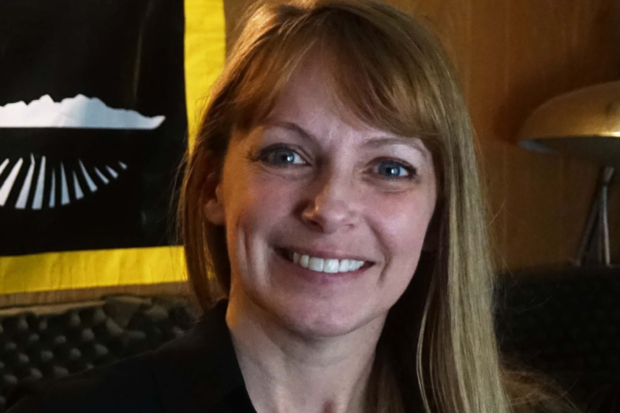
By Eduardo Stanley
In 2020, eight-time incumbent Rep. Jim Costa (D–Fresno), who represents Congressional District 16—which includes Merced County and parts of Madera and Fresno counties—will face not just one but two female Democratic challengers.
Kim Williams (www.kimwilliamsforcongress.com/en/) was born in Georgia and is now a resident of Merced. She says that she decided to run against the well-established, well-financed Costa because of the high level of poverty in the district.
“It is one of the poorest districts in the country; one in four adults is living in poverty, 66,000 children are food insecure…and the air, it’s among the less breathable in the country,” said Williams. “To me, this means a significant amount of political neglect.”
Williams, who worked eight years in the federal government under the Obama administration, is convinced there are resources available to help improve this situation. According to her, this could happen only as part of the new social and political wave taking place around the country. And for this, a new generation armed with a new agenda is needed.
“I signed on the Progressive Economic Agenda Pledge, which is all about free college, the Green New Deal [and] Medicare for All,” said Williams during an extensive interview. “I am also a supporter of universal pre-K, which is terribly important for working parents, particularly in this area.”
Can this be possible in a traditionally conservative area represented by a so-called Blue Dog Democrat? According to this single working mother, the district is ready for a change.
“There is momentum across the country for this level of change that it is more possible now than any other time…When we talk to people about better-paying jobs, about real access to healthcare, not losing your home or your money, they get excited,” explains Williams.
Conservatives used to dismiss such proposals arguing there is no money for such programs. However, Americans are spending already way too much money for services such as healthcare because a big chunk of that money goes to private pockets.
“Regarding healthcare, they will say it’s going to cost one trillion dollars but when you see what we are spending on this topic, it is already a trillion dollars,” says Williams. “Americans spend $900 billion on private insurance and another $100 billion on publicly funded health programs…So basically we are looking to a system that would be moving the money from one place to the other.”
She explains that after Sen. Bernie Sanders (D–Vt.) introduced a bill a few years ago to tackle healthcare, several studies—including some produced by conservative organizations—proved it could save consumers a lot of money. Nevertheless, Sanders’ bill was rejected by Republican senators. Williams is convinced that giving people better access to healthcare is more efficient and more cost-effective than the current system.
The candidate says that the German model is her favorite. “They pay 7%–8% on taxes that go to a national insurance plan, but they have more doctors per capita with an 80% chance you’ll be seeing a doctor the same day or the next day. Right now, here, with my insurance plan, [it] takes me weeks to get an appointment, I have to drive two hours to see the doctor and I have to pull my daughter out of school, so I feel I am spending a lot of money and I not getting a lot from that.”
Williams concludes that a person in the United States pays double for healthcare what anyone else in the world does and does not necessarily get good quality care.
Williams mentions that the high cost of healthcare in America is driving thousands of people into bankruptcy or even homelessness, and so a solution is needed, including price control for medicine. She explains that the Veterans Administration pays 20% less for medicine than Medicare.
Finally, she points out that the perception of a majority of Americans depending on private insurance is wrong. “Forty-three percent of the people have healthcare provided or managed by the government; we have to expand that.”
Regarding immigration, Williams has a critical approach. “We have to be honest about how we [the United States] have contributed to the situation…It is not just about trade policies but refusing to take ownership on climate change because those events are taking place around the world, forcing people to flee their lands.”
She also mentioned that not all immigrants choose to leave their countries and that she feels really bad about what is happening at the border, and concluded the topic by saying that lots of changes are needed on this matter.
Williams expressed concerns about the labor vulnerability of farmworkers, particularly considering that they work for an industry making billions per year thanks to their hard work. She suggests planning programs to develop an economy similar to the New Deal period that could help rural areas.
Moreover, Williams, who was also a history teacher, is concerned about the constant increasing of the military budget and the expanding number of homeless in our communities.
Can a young, single, progressive mother change the history of Congressional District 16 next year? Is Williams part of the “silent revolution” bringing positive changes to our society that could help transform the San Joaquin Valley?
Next year could be an exceptional political year for America.
*****
Eduardo Stanley is a freelance journalist for several Latino media outlets and a Spanish-language radio show host at KFCF in Fresno. He is also a photographer. To learn more about his work, visit www.eduardostanley.com.
